There are endless articles out there with tips from “experts” about how to overcome jetlag. As someone who has flown millions of miles and has spent a countless number of nights in timezones very far away from home, I figured I’d share my take.
In addition to sharing some general tips for overcoming jetlag, I want to also talk about why I’m not as obsessed with getting over jetlag as others. Let me start by saying that this advice is intended primarily for people traveling for leisure, rather than those who are on whirlwind international business trips.
In this post:
I don’t buy into “traditional” jetlag advice
The way I view it, there’s some traditional advice for avoiding jetlag that I don’t follow. I’m not saying it’s bad advice, but I just question why one should even bother. For example:
- Already start to adjust to your new timezone days before you leave on your trip, by getting up progressively earlier or later — that seems like a lot of effort
- Don’t drink alcohol or eat on the plane, but rather go straight to sleep — okay, totally fine if you’re flying economy, but you haven’t been racking up all these miles with credit cards in order to drink water in Emirates first class, right? 😉
- Change your watch to the local time at your destination as soon as you leave home, so you can start acclimating — fair enough, but that’s not some magical pixy dust that’s going to make you adjust… oh, and I also don’t own a watch
- Always stay on local time when you get to your destination, and don’t nap — naps are kind of amazing, though, and who doesn’t love an afternoon siesta?
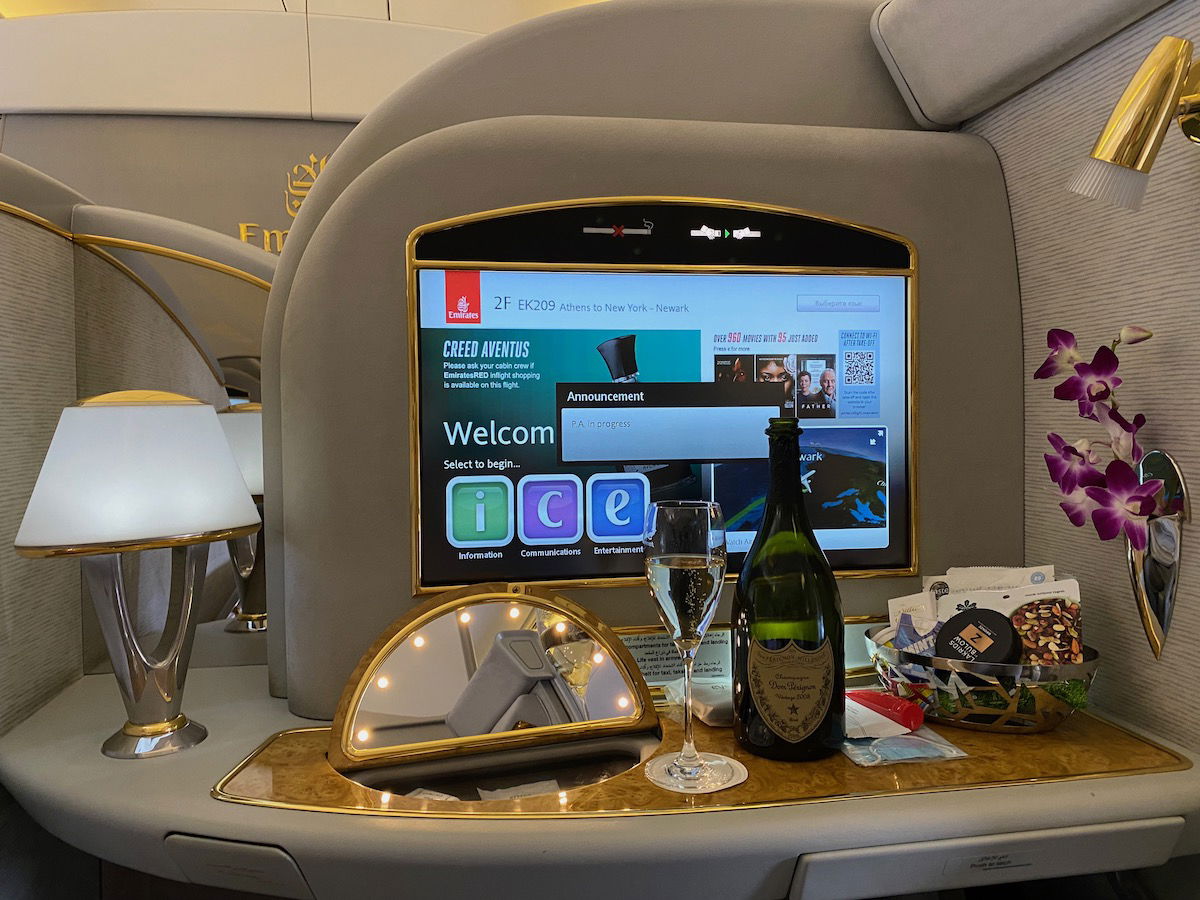
Why I’m not intimidated by jetlag
While I generally try to adjust to local time when traveling internationally, I’m not obsessed with it in quite the way other people are. Why?
- I get up at 3-5AM when I’m at home (without an alarm), and I love being a morning person, so if I get up an hour or two earlier (or later than usual), it’s not a big deal; I feel like jetlag advice is largely for people who are late risers, who don’t want to get up early
- I kind of love the feeling of being jetlagged; I love making a coffee at 2AM in my hotel room, getting some work done, going to the gym, and still being the first person at breakfast
- I have the flexibility to work from anywhere, and I also work whenever I travel, so I try to have at least some of my day overlap with US business hours; since my travels aren’t generally a “once in a lifetime” holiday where I have no work, I don’t have the same obsession with being perfectly adjusted that many other people have
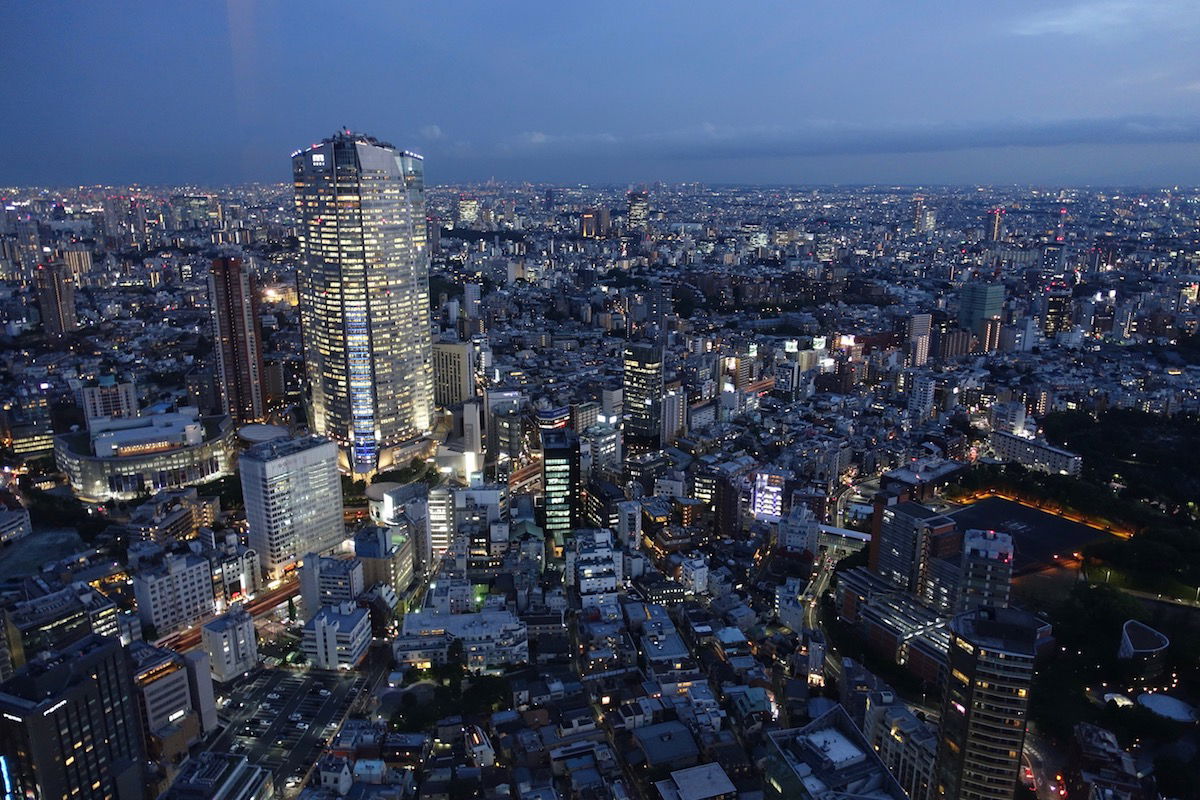
My tips & strategies for dealing with jetlag
With the above out of the way, I’d like to share my tips and strategies for dealing with jetlag while in timezones that are far away from home. In no particular order…
Stay out of your hotel room as much as possible
If you’re like me, your hotel room is also your office when traveling. But that’s also a slippery slope. Your room might have a mediocre office desk and a very comfortable bed. So if you’re anything like me, you might get off a long haul flight, then go sit at your desk in your room, and then slowly start working from bed, and then… zzzzz.
Therefore while adjusting to a new timezone, I always recommend staying out of your room as much as possible if you don’t want to sleep. Get some fresh air and sightsee, go to the gym, or if you want to work, go to a coffeeshop, the hotel lobby, or the hotel club lounge, assuming you have access. This will help you avoid the temptation to sleep.
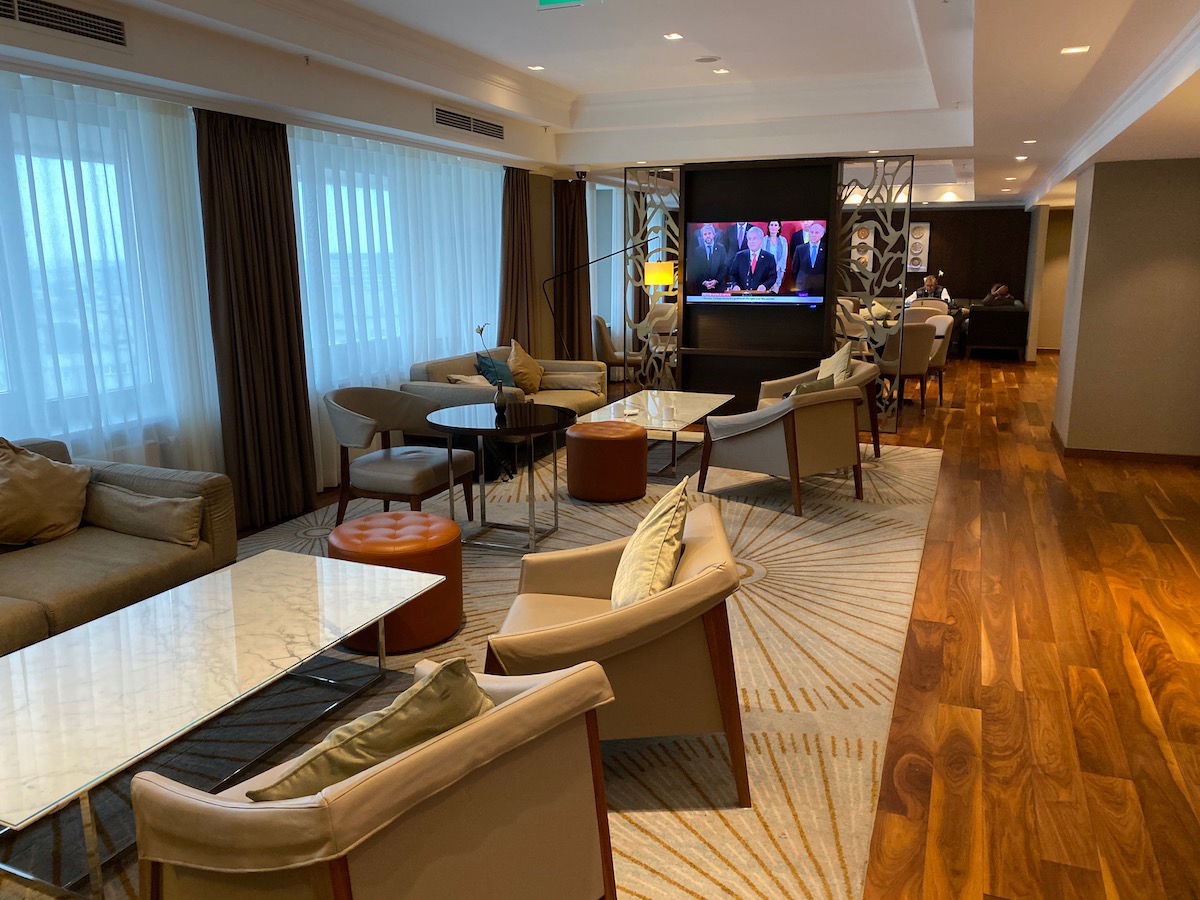
Don’t nap after 2PM
This is quite possibly the most important point for me. Some people say you shouldn’t nap at all when battling jet lag. I don’t think that’s necessary.
For example, if you have a long haul flight and land at your destination at 6AM, in my opinion you should nap so that you’re refreshed. The key, though, is to avoid a nap late in the day. Based on my preferred schedule (getting up around 5AM, going to bed at around 9PM), I never nap after 2PM.
When I try to nap after 2PM that typically turns into a full-on slumber, and that’s not good for adjusting timezones.
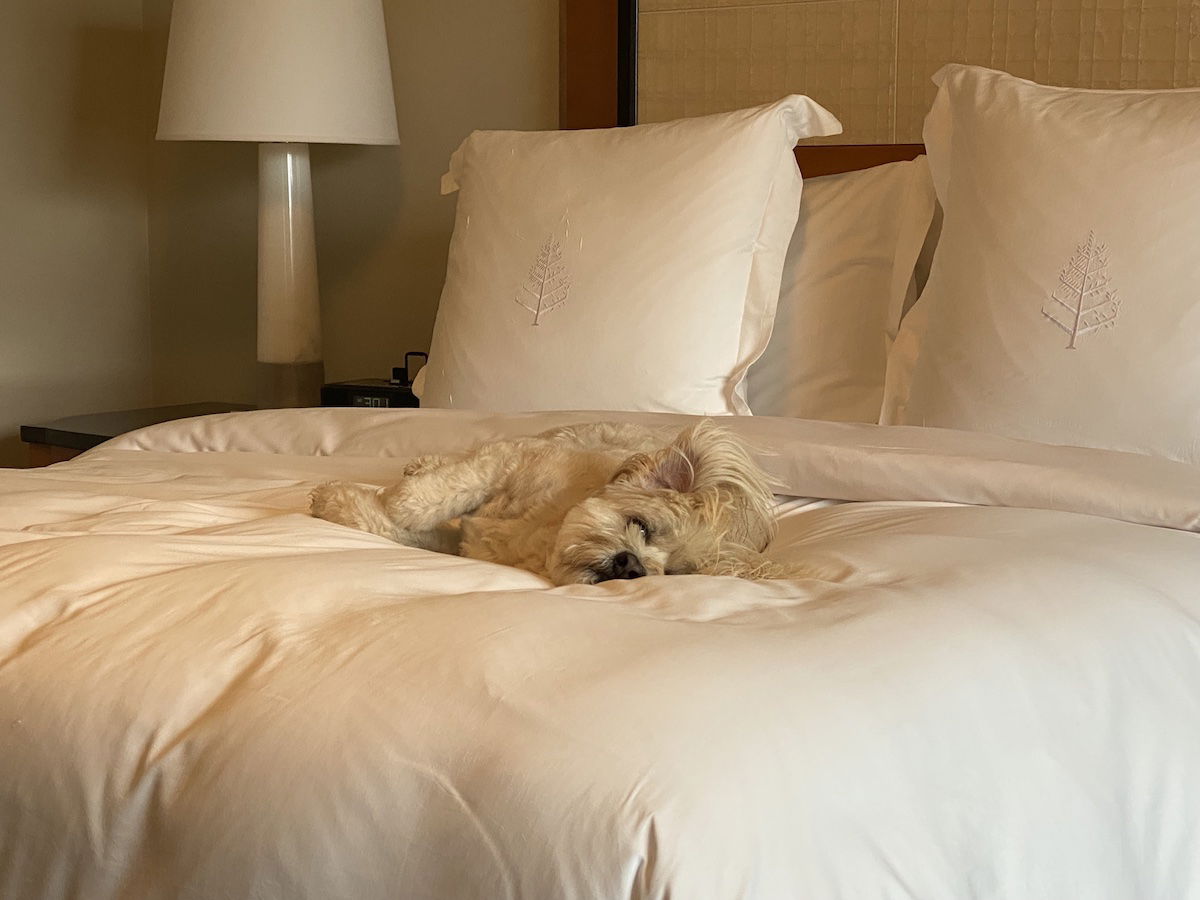
Use the power of caffeine
Others will disagree with me on this, but in this post I’m sharing my tips, so too bad. 😉 I love coffee in general, and in particular when traveling. When it’s the afternoon on my first day at a new destination and I’m tempted to nap, I instead leave my hotel room and try to find a great cup of coffee somewhere.
That kills many birds with one stone — I get caffeine, fresh air, and I pass time.

Don’t leave your phone next to your bed when sleeping
Once you finally do fall asleep for the night and are trying to overcome jetlag, I recommend not putting your phone within easy reach from where you’re sleeping. Why? When I wake up in the middle of the night I’m tempted to just look at my phone briefly, but once that happens, I’m wide awake. After all, life is continuing in my timezone back home, and I have all kinds of emails, messages, etc.
So instead I leave my phone face down and far away. I turn on a white noise app, and I can choose for how long I want it to play. For example, I might play it for six hours — then rather than looking at what time it is, I can tell by the noise whether six hours has passed since I fell asleep. I have a much easier time going back to sleep when I don’t look at my phone.
Speaking of a white noise app, I think that’s also super helpful for battling jetlag. I use the same app whether at home or traveling, and it somehow creates a bit of familiarity no matter where I am. It also helps with any potential noise issues due to poor sound insulation in a room, street noise, etc.
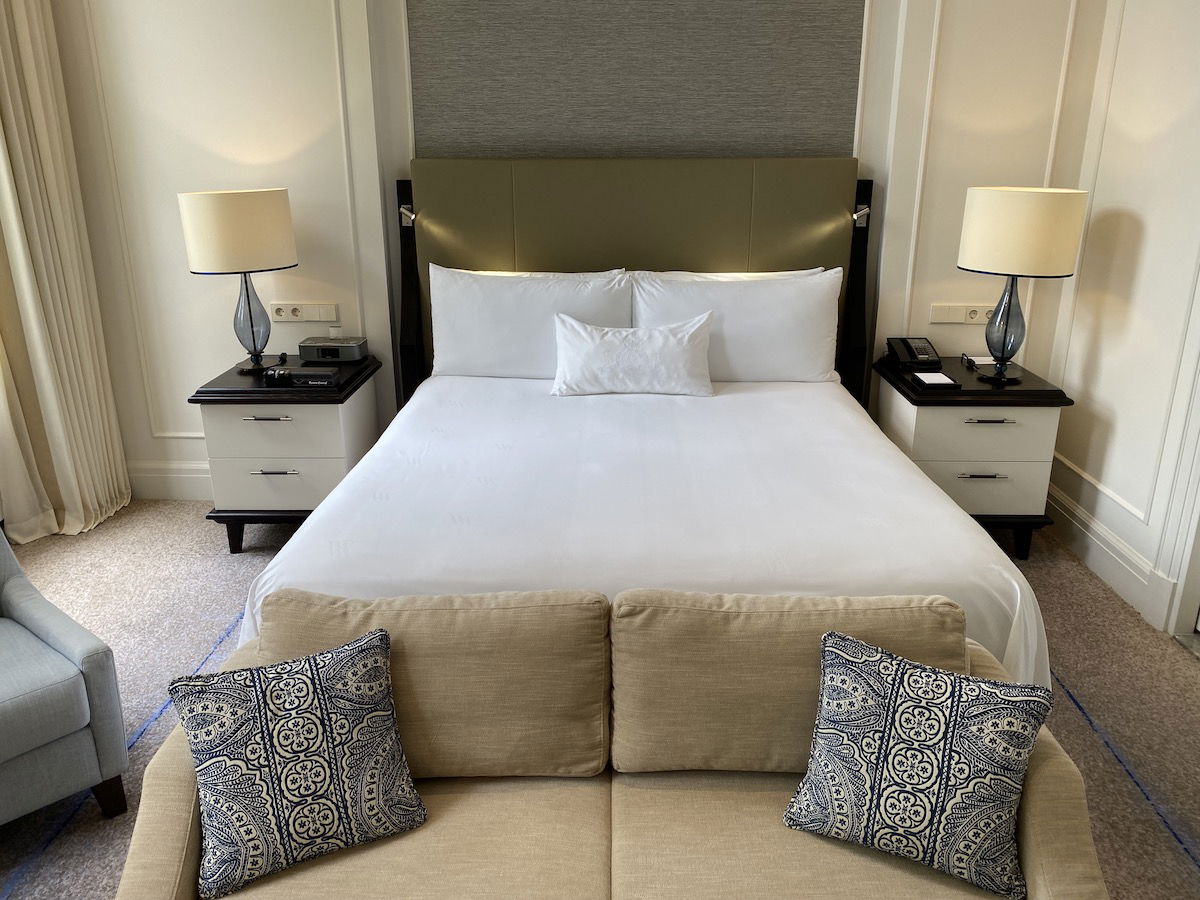
Being up at weird times isn’t that bad
I hinted at this earlier, but I think it’s worth emphasizing — being jetlagged isn’t that bad, and on some level I’d encourage people to embrace it. Some of my fondest travel memories have involved wandering foreign streets in the middle of the night. There’s something beautiful about being up before everyone, and watching the sun rise (if that’s not something you’d usually do).
Sure, try to adjust to local time as much as you can, but don’t beat yourself up if you don’t get it exactly right. You can see a destination in a whole different way at off hours. For that matter, there’s something really nice about taking an afternoon nap if you got up much earlier than usual. I especially love this in tropical destinations where it may be ridiculously hot in the afternoons.
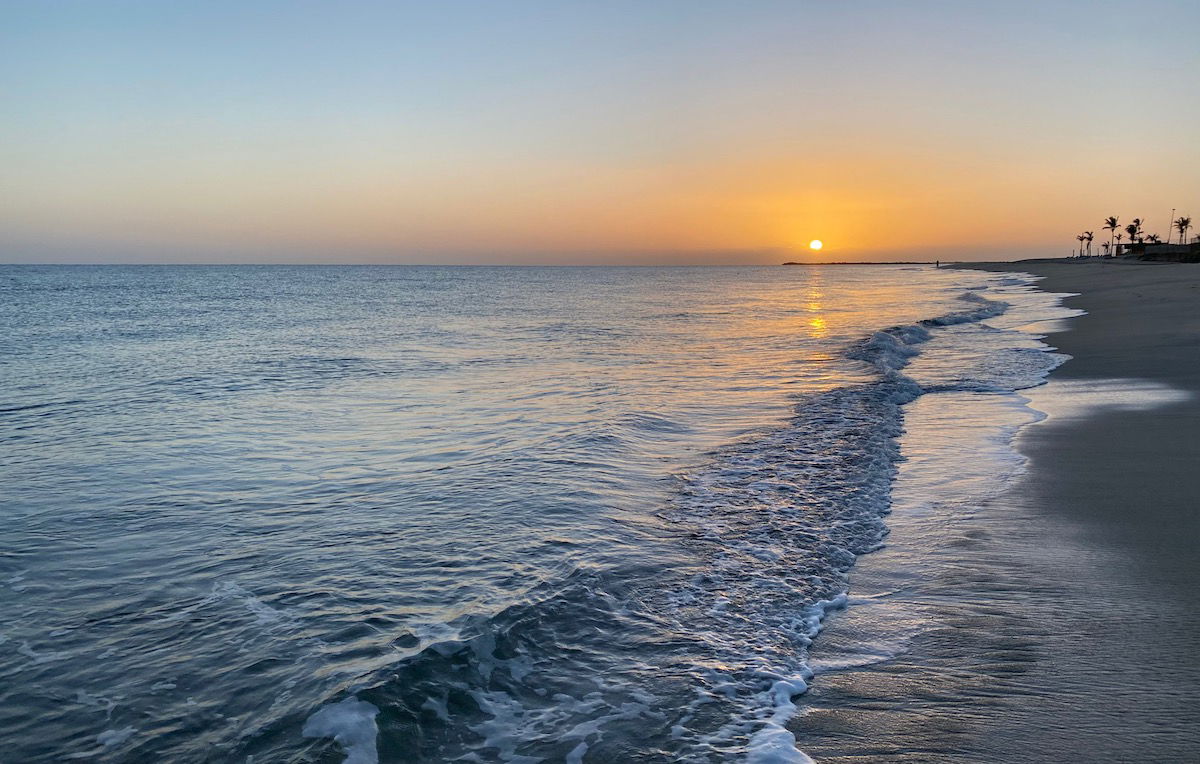
Pick your arrival times deliberately
I find that timing when I arrive at a destination can have a big impact on how I do with jetlag. Coming from the East Coast of the United States, here are my general preferences for the time at which I like to arrive at destinations:
- For Europe, I like to arrive as late in the morning or early in the afternoon as possible; this allows me to avoid napping the first day, and then I’m deliriously tired by bedtime, and get a good night of sleep
- For the Middle East and Africa, I prefer to arrive in the early evening; it has usually been a very long travel day, and my best bet is to have dinner or take a walk, then go to sleep, and then wake up early the next morning (as usual)
- For most of the rest of Asia I don’t have that strong of a preference one way or another, since it’s such a massive time change, and it’s going to be a struggle no matter what; I generally prefer an early morning arrival with the possibility of a nap, assuming my hotel room is ready, but that’s a whole different adventure
- For “deep” South America you have to take a long flight but the timezone hasn’t really changed, so I prefer taking an overnight flight to travel as efficiently as possible, and then I’ll try to take a nap early on my first day
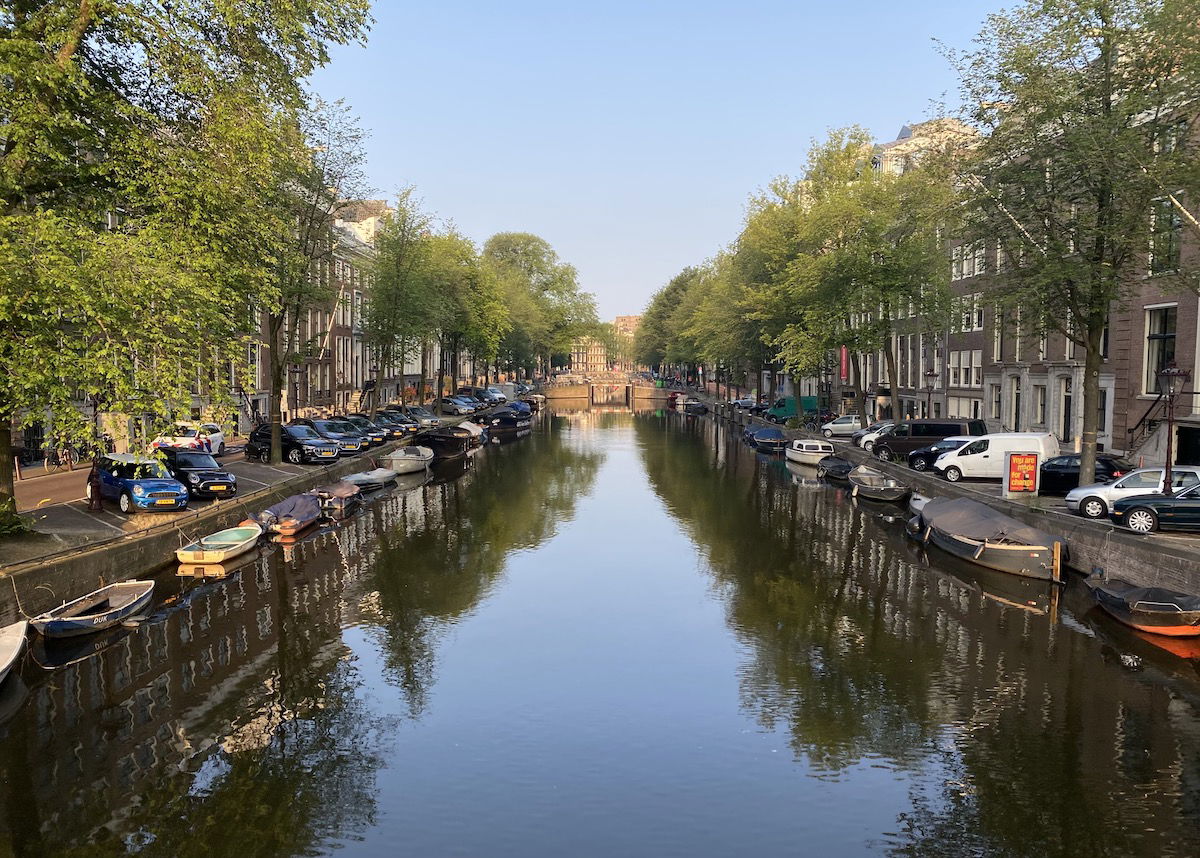
Enjoy your flights
This counters typical jetlag advice, but OMAAT is largely about helping people maximize their rewards to travel in comfort. Maybe I’m just still a kid at heart, because the prevailing “beating jetlag” thought process seems to be to board a plane, not eat or drink anything, and go straight to sleep.
Not only do I struggle sleeping when there’s a meal service (because of the noise, smell, lights, etc.), but for that matter a large part of what I love about first & business travel is the inflight service, especially on top airlines.
So while this perhaps isn’t great jetlag advice, by all means enjoy and maximize a flight if you’re looking forward to it. Have some great food and drinks, take a nap (or don’t), and you can figure out your jetlag situation when you’re on the ground. Of course this assumes that you’re traveling for leisure, and aren’t traveling for business and need to hit the ground running on arrival.
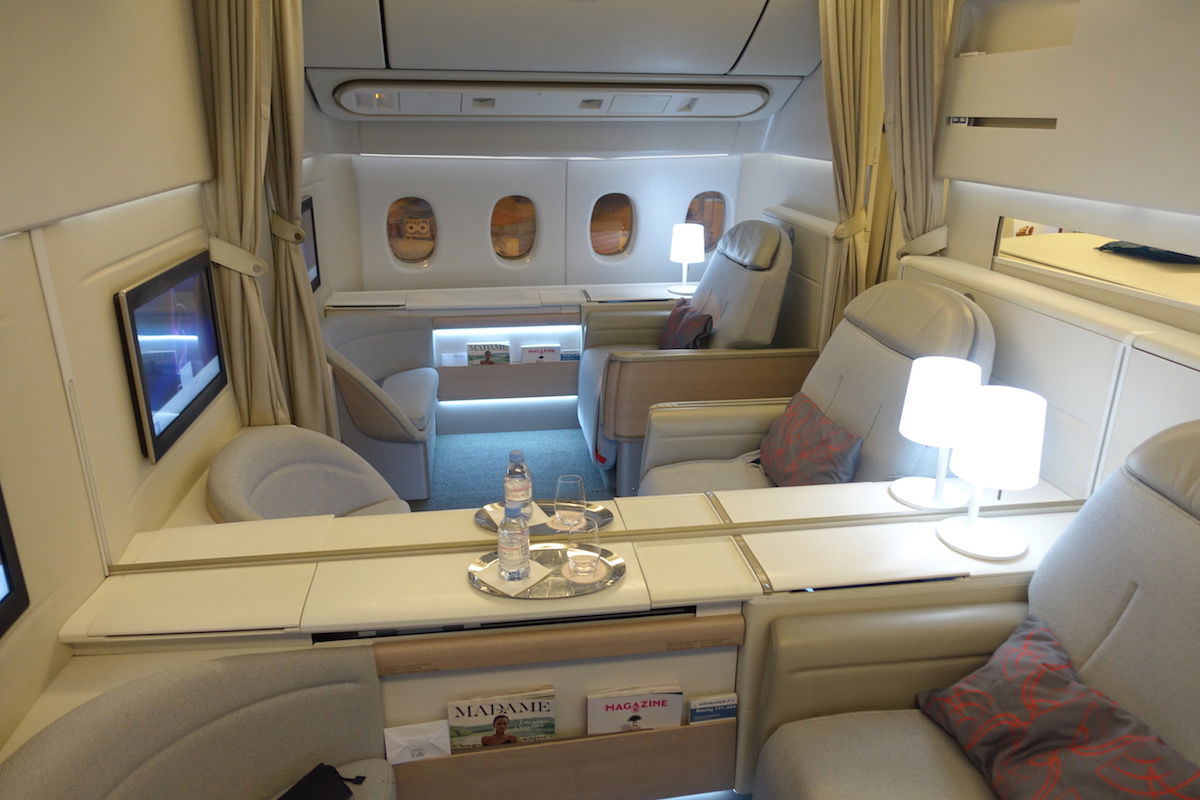
Bottom line
I’ve certainly done my fair share of long haul travel over the years, and the above is my general approach to dealing with jetlag. As you can tell, I don’t pursue a “zero jetlag” strategy, but rather try to find a happy middle ground. I’m a very early riser anyway, so if I get up an hour or two earlier or later, it doesn’t really matter to me. If anything, I hate when I get up at 8AM or later, since I feel like I’ve already wasted half of the day (yes, I’m weird).
Personally when trying to adjust to a new timezone I try to stay out of my hotel room as much as possible, drink coffee (and use finding a good cup of coffee as an activity any hour of the day), avoid afternoon naps (and embrace morning naps), put my phone far away from me when sleeping, etc.
What’s your strategy for dealing with jetlag when traveling?



Ben, if I remember correctly, you just posted about how you prefer the daytime flights to Asia instead of the double red-eyes??? So, how come that has changed now, since you would rather nap upon landing
Sleeping pills are useful here
I've always found the large ~12 hour time difference with Asia the easiest to deal with. Because a simple all-nighter before a noon-ish flight gets me adjusted immediately. I just nod off upon boarding and am thus sleeping during my destination's night.
Ben - which white noise app do you use that lets you program in the time period so you know when a certain amount of time has passed?
I'd also like to know
I use Sleep Pillow, which has a large variety of sounds and a timer.
I have my own theory. A large part of jet lag is about the jet, not the time zone difference. I mean the confined space, lack of oxygen, etc. I started flying Canada to Chile and Argentina, and it feels just the same as flying to central Europe, even though there may not be a time zone difference.
Change your watch to the local time at your destination as soon as you leave home, so you can start acclimating — this is a great tip and something I always do. And drink lots of coffee.
Well timed small doses of melatonin have been my jet lag remedy for years. Take 1-3 mgs. at the approximate destination bedtime when flying east and then sleep as best you can on the plane. Take another dose at the destination at bedtime and for another day afterwards. To fly west, take the same dose upon awakening to delay “dawn”. Yes, you’ll feel groggy but just push through. Nap in the morning if you can....
Well timed small doses of melatonin have been my jet lag remedy for years. Take 1-3 mgs. at the approximate destination bedtime when flying east and then sleep as best you can on the plane. Take another dose at the destination at bedtime and for another day afterwards. To fly west, take the same dose upon awakening to delay “dawn”. Yes, you’ll feel groggy but just push through. Nap in the morning if you can. Upon arrival at destination, take the same dose for two days thereafter. I’m telling you, it works!
I'm in the "don't nap after 3-4pm-ish and stay awake to a normal bedtime at all costs, including using ample caffine" camp. That usually works for me. If I'm dying to stay awake, I'll get a coffee at 7pm.
My biggest issue is SF-NY trips. I can never fall asleep the first night with the 3 hour time change. Anything longer than is no problem.
I had a wonderful morning in NY being the only person on the Times Square at 4 am.
But being awake at 3 am when you know you have 10. hours plus on business meetings ahead of you is a different matter.
Figure out what works for you. Know your body. I keep my medicine schedule the same back home. Everything else sleep and eating I go with the flow and accept disrupted bowel movements and insomnia.
I prefer the 4pm overnight flights from Houston that arrive in Europe 7am next day. Have an early dinner and force myself to sleep. Tip : when you land go back to sleep while taxiing to the gate you can pick up another 10-25 minutes of sleep.
Argonne National Laboratory fasting. Actually proven to work. Heaps of info online about it. (My other comment got eaten)
Your napping advice is plain wrong, even ignoring the fact that traditional siesta cannot really begin before 14:00!
The key consideration isn't what time you take a nap, but rather how long you do it for. You should probably aim for about 45'. There's even been research (on professional drivers) to suggest that the best way of napping is to drink a double espresso immediately before going to bed and aim to get up...
Your napping advice is plain wrong, even ignoring the fact that traditional siesta cannot really begin before 14:00!
The key consideration isn't what time you take a nap, but rather how long you do it for. You should probably aim for about 45'. There's even been research (on professional drivers) to suggest that the best way of napping is to drink a double espresso immediately before going to bed and aim to get up in 15-20 minutes with the caffeine in full swing.
Each person, and each journey, will be different, but I find that anything around 50-90 mins doesn't help more than a short nap, and that anything more than two hours completely screws me up.
your napping advice is just plain wrong, and your end statement contradicts your stupid entry comment.
There's no contradiction in my comment, the only issue is with your level of reading comprehension.
Try this instead: The WHEN is an irrelevant factor, the HOW MUCH is the key variable, but it's still a variable, not a constant number that applies to all humans.
It's actually good advice; the optimal nap time is said to be 18-24 minutes, and the caffeine trick actually works. There has been research done. So, Big AI, you are, in fact, wrong.
Jet lag is all about mind over matter ….
As I don’t mind it …. it doesn’t matter to me.
Ok! Seriously now, I consider myself to be really lucky because during a long military career I was able to work, rest and play on demand. Whenever the situation demanded it I was able to operate under all circumstances, I know, very lucky indeed as it continues today.
Heads up because for once I actually agree with you 100%.
It's mostly mental. I did JFK-LAX/SFO-AKL back and forth all the time in my late 20s. Never once had "jet lag" as described by countless others. Too busy living life and working as hard as I could for a start-up company. Some of the best sleep of my life, too, collapsing into Economy on NZ or UA or in some hotel room somewhere....
Heads up because for once I actually agree with you 100%.
It's mostly mental. I did JFK-LAX/SFO-AKL back and forth all the time in my late 20s. Never once had "jet lag" as described by countless others. Too busy living life and working as hard as I could for a start-up company. Some of the best sleep of my life, too, collapsing into Economy on NZ or UA or in some hotel room somewhere.
Sure, it had a physical toll but a healthy young body can handle it. No more than my friends and colleagues who ran marathons and did extreme sports. It wasn't until I was in my 30s when I had the incumbent pressures of family and a perceived sense of aging that jet lag started to bother me. My advice to anyone is listen to your body and stop worrying about how you "should" be coping. That leads to sleepless nights and miserable days.
I have had great results by staying outside as much as possible on arrival day and by ingesting plenty of caffeine that afternoon.
I used be very against napping the first day, but the older I get, I find that taking a 20-30 minute nap (absolutely no more than that) on the day of arrival can actually be really beneficial. I only do this if it's a morning arrival and never in the afternoon.
I agree with the rest of the points but I would specifically highlight that walking and fresh air are the two keys for...
I used be very against napping the first day, but the older I get, I find that taking a 20-30 minute nap (absolutely no more than that) on the day of arrival can actually be really beneficial. I only do this if it's a morning arrival and never in the afternoon.
I agree with the rest of the points but I would specifically highlight that walking and fresh air are the two keys for me. In other words, don't leave the hotel room but then go sit in a cafe. Being out and about helps immensely.
Best advice, arrive in morning or late morning.
Flights like TPE- SEA that arrive in evening local time are the worst for aligning sleep with local time.
Once checked in, see if there is option for a small nap. Or just take a shower and don’t come back to my room till it 8 to 9 pm local time.
Ben, admittedly I only skimmed the second part of the post, but I didn't see sleep aids being mentioned. I stay away from them on normal every day routine because you slowly build tolerance and just need a larger dose. But they are essential to me when I travel long haul. They force me to sleep after meal service, and as long as I can get 2-3 hours in flight, that's enough to get me...
Ben, admittedly I only skimmed the second part of the post, but I didn't see sleep aids being mentioned. I stay away from them on normal every day routine because you slowly build tolerance and just need a larger dose. But they are essential to me when I travel long haul. They force me to sleep after meal service, and as long as I can get 2-3 hours in flight, that's enough to get me through the day. I then take them at my destination for 2-3 days in a row so I can stay asleep during the night. I'm generally fine and well adapted on day 2. Also don't underestimate free walking tours on the day of arrival. They will keep you moving and awake. We do one on day 1 each time we travel. They keep us awake, let us learn the lay of the land for the next several days, and we can ask a local tour guide questions and recommendations. I do agree with you that when I'm traveling business, I will enjoy the flight, so the no drinking stuff goes out the window. I also swim on caffeine on the first day. And no, I won't start getting up at 2am 4 days before I go on vacation. That's just ludicrous.
This has worked in the past for me to get over jetlag to Europe, but I wouldn't necessarily recommend it. When I arrive (hopefully mid-afternoon) and check into the hotel, I try to take a ~1 hour nap (make sure you are diligent about setting and then waking up to your alarm). After that, get up, get ready, and get out for as long as you possibly can. It helps if you drink a decent...
This has worked in the past for me to get over jetlag to Europe, but I wouldn't necessarily recommend it. When I arrive (hopefully mid-afternoon) and check into the hotel, I try to take a ~1 hour nap (make sure you are diligent about setting and then waking up to your alarm). After that, get up, get ready, and get out for as long as you possibly can. It helps if you drink a decent amount of alcohol.
Whenever I've done this, I might have a bit of regret in the morning, but I've adjusted to the new time zone.
Melatonin is my secret. I use it to prompt myself to sleep on a flight or in a hotel whenever my body clock is misaligned with my ideal schedule. With good planning, it ensures I have adequate sleep by the time I need to be productive.
Number one I would never want a job that expects me to fly overnight even in business and go right to work the next day. Not gonna happen. Personally, I find once you get to your hotel unpack, have a small meal, a cup of tea, lots of water and just go to sleep. Start the vacation/leisure trip on Day two.
I'm the exact opposite. I would much rather have a schedule that minimises downtime and allows me to spend as little time away from home as possible. Redeyes are painful, but they can be your friend to achieve this. To each their own!
Same. I would hit the ground running if I had some paperwork , banking , or a meeting and just get it over with upon arrival so I can relax for the rest of a trip.
Stay young. Every decade it's a bigger fight.
I have gone sober 2 years ago and now obviously no longer drink in business class. It is night and day how much better I sleep and arrive in Europe refreshed and ready to go.
The number one piece of advice I give on jetlag is, know thyself - everyone will respond to it in different ways, and (unfortunately) there's no one-size-fits-all.
For example, in my case:
1-3 hours of time zone change is nbd, I just power through.
4-8 hours of time zone change, as long as I can stay awake until at least 7pm on the first day, I'll adjust overnight and be on local time...
The number one piece of advice I give on jetlag is, know thyself - everyone will respond to it in different ways, and (unfortunately) there's no one-size-fits-all.
For example, in my case:
1-3 hours of time zone change is nbd, I just power through.
4-8 hours of time zone change, as long as I can stay awake until at least 7pm on the first day, I'll adjust overnight and be on local time for day 2.
9-12 hours of time zone change, my internal clock just "resets" and I'm good to go.
That won't work for everyone, but fortunately for all concerned, I'm not everyone :)